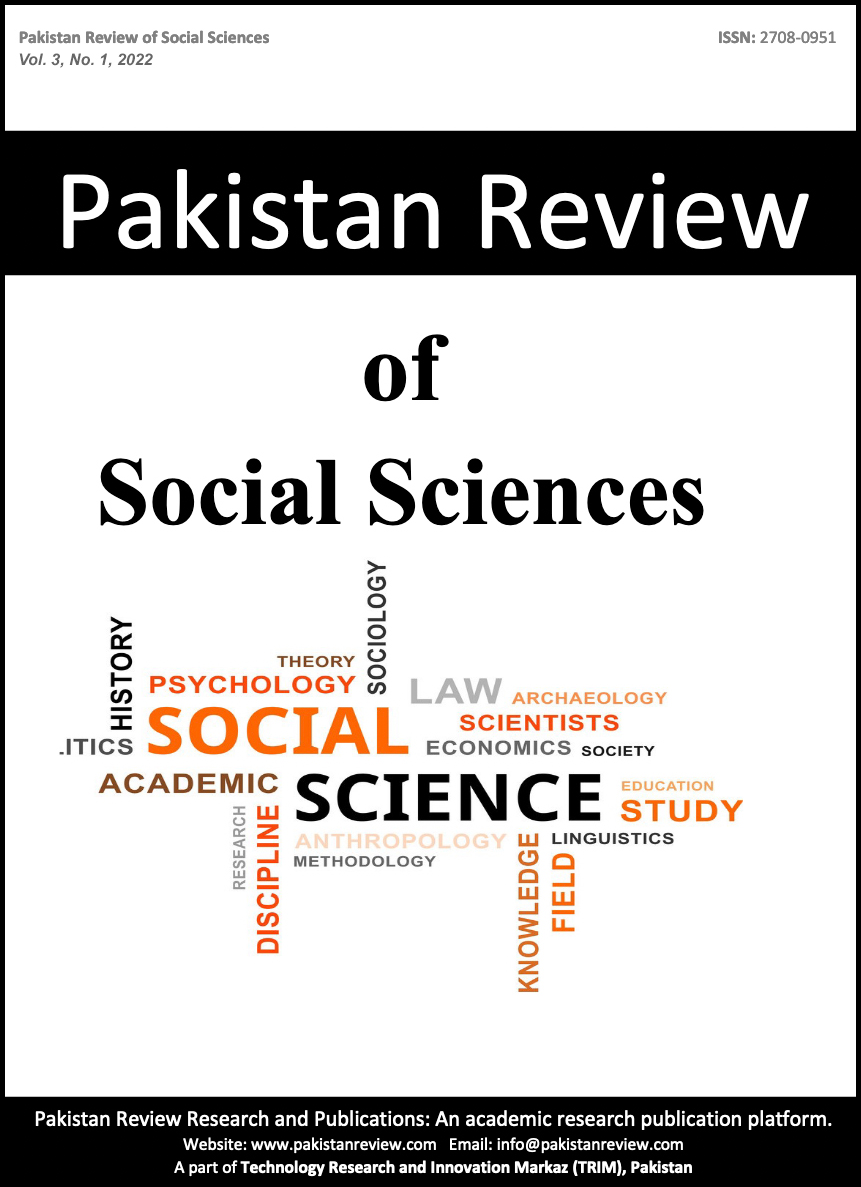Climate Change Induced Floods in Pakistan 2022: Ineffective Pakistani Governance and The Role of Ingos in Providing Assistance to The Victims
INEFFECTIVE PAKISTANI GOVERNANCE AND THE ROLE OF INGOS IN PROVIDING ASSISTANCE TO THE VICTIMS
Keywords:
Climate Change, Floods, Humanitarian Organizations, Relief, Recovery, Rehabilitation, GovernanceAbstract
The main aim of this paper is to analyze the impact of climate change induced floods that wreaked havoc in Pakistan in the year 2022, and the efforts made by developmental organizations to provide relief and rehabilitation to the victims. Climate change is an inevitable reality and is evident in Pakistan through the rising temperatures causing heatwaves and droughts, heavy monsoon seasons resulting in unprecedented rainfall across the country that is affecting not only the rural communities but also the urban lifestyle. Since the government of Pakistan does not have adequate budget to spend towards disaster risk management, mitigation, and resilience, it is the generous donors and humanitarian organizations that support the government to safeguard the citizens of Pakistan especially the flood affected communities. Organizations such as United Nations, International Rescue Committee, Oxfam International, and various others played a vital role in reaching out to those affected by the floods through their effective and efficient flood response and now recovery plans. However, one year later people are still suffering, infrastructure is still damaged and developmental organizations still face challenges that are to be addressed by making effective policies for the future so that these organizations along with the government of Pakistan can contribute towards the betterment of the society.
Downloads
Published
Issue
Section
License
Copyright (c) 2025 Izza Syed

This work is licensed under a Creative Commons Attribution 4.0 International License.
Submission declaration
Authors retain the copyright to their work and grant the Pakistan Review of Social Sciences (PRSS) the right of first publication under a Creative Commons Attribution 4.0 International (CC BY 4.0) license. This license allows others to share, adapt, and reuse the work for any purpose, including commercial use, as long as appropriate credit is given to the original authors and the journal.
By submitting a manuscript, authors confirm that the work has not been published previously (except as an abstract, lecture, or academic thesis), is not under review elsewhere, and has been approved by all authors and relevant authorities. Once accepted, the article will be openly accessible under the CC BY 4.0 license, ensuring wide dissemination and reuse with proper attribution.






